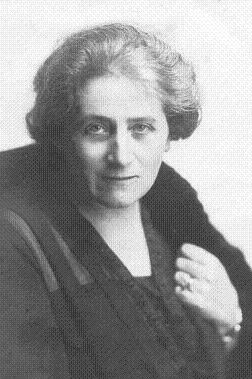
Born: 27 October 1869, Amsterdam, Netherlands.
Died: 20 July1959, Naarden, Netherlands.
Father: Charles Boissevain
Mother: Emily Héloïse MacDonnell
Married: Cornelis van Eeghen (1861-1940), 20 September 1888, Amsterdam, Netherlands.
Children:
Hendrik, b. 19 August 1889, Zandvoort, Netherlands, d. 26 March 1928, Amsterdam,
Netherlands.
Emily Héloïse, b. 4 August 1890, Zandvoort, Netherlands.
Alfred Gideon, b. 12 November 1892, Hilversum, Netherlands, d. 13 February
1957, San Diego, California, USA.
Maurits Jan, b. 2 March 1897, Hilversum, Netherlands, d. 7 November 1951,
Amsterdam, Netherlands.
Other information:

Great-niece Brigid Marlin Oakley writes: Tante Mary (Maria) was a real character. She was a great beauty in the style of that time, and her father adored her and (surprisingly for that time!) he loved her to dance in a red dress on the table! One of the guests at the party saw her, fell in love with her, and they married. Unfortunately he had a roving eye and after some years he fell in love with an actress, who insisted that he divorce Tante Mary and marry her. He told this to Tante Mary who said; "Listen, this woman is just out for what she can get. Go and live with her if you must and when you are tired of her you can come back. But if you put me through the public disgrace of a divorce, I will never take you back afterwards." The actress insisted on his getting a divorce and after seven years Tante Mary got a postcard from her ex-husband with a painting on the front of a girl in a red dress dancing on a table. He wanted her to get married to him again, but she would not. Tante Mary was having a wonderful time. He had been very miserly and kept her short of money, but after the divorce he had to give her alimony and so she was quite well off as he was a rich man. She became a Theosophist and gave most of her money to the Theosophist Society. Then during the war she was looked after by them, so it turned out to be a good investment. Her relatives always found her ceremonious way of living very funny, because even during the worst of the food shortage, Tante Mary would dress for dinner, and the butler would arrive with a silver dish on which rested one potato, which he served with a flourish.